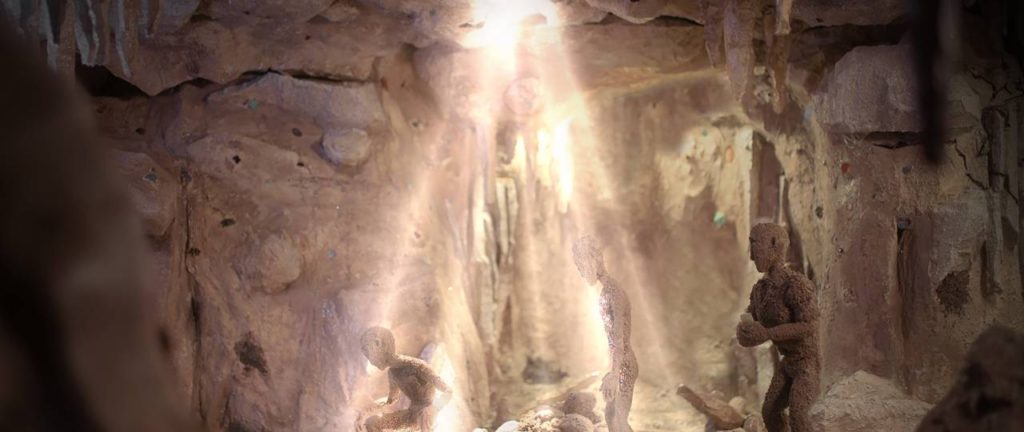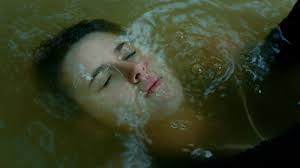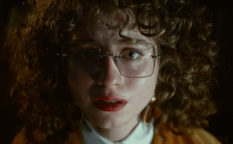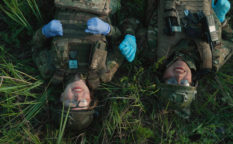NIFFF 2022: Swiss Shorts close-up

In a relatively small cinema environment such as the Swiss, it is not that easy to select a programme consisting of fine works with special focus on the genre and the fantastic side of cinema, but the programmers of NIFFF (Neuchatel International Fantastic Film Festival) have somehow managed to compose a fine and diverse short film programme. However, some “statistics” has to be pointed out: out of six films, three are animated and largely dialogue-free, while the remaining live-action titles could be divided along the lines of approach to the genre – a “proper” genre flick, an attempt at the so-called elevated genre and a complete mood piece that certainly is fantastic in its treatment of the external reality, but is more of an arthouse work that references the genre ones, than a genre film itself. Another thing that needs at least noting, if not outright commending is the creativity of the team behind the “elevator pitch” kind of description that was used on the festival’s website to present the movies to the audience.
Described as “totalitarian motion sickness”, Mr Pete & The Iron Horse, directed by Kilian Vilim, is an obvious, yet effective David vs. Goliath-type metaphor of class combat and freedom fighting set on the running, perhaps even runaway train in which the puny little stoker stands up against his own exploitation and confronts the enforcer(s) and eventually the dictator. Animated by Vilim in digital, almost flash-like 2D, this effective short film wins the audience over with its emphasis on the striking contrasts in its colour scheme of dark blues and bright reds and with its manic tempo. The film was nominated for the Silver Méliès Award for Best European Fantastic Short Film by the jury.
Eleonora Berra’s Mosaic is also a metaphor, but of another kind, as it deals with the early steps of the social revolution in which the men made of clay and decorated with shiny rocks exit their native cave and go out to the desert-like hostile outer world. The idea to use clay figurines in stop-motion animation is probably the most obvious one, but it is executed competently by Berra and Joel Hoffman, and the approach with no dialogue, with Marco Chiavetta’s ambiental soundtrack and Aline Schoch’s sound design to fill the soundscape, actually works in this examination of progress on a social and even personal level. Mosaic brought Berra the R. Giger Narcisse Award for Best Swiss Short Film in Neuchâtel.

The most successful of the animated batch could be the “surreal self-discovery” animated and directed by Konstantin Rosshoff, Marco Jörger and Tanay Sirin titled Dude. The title is actually the only line of dialogue spoken by the two film’s characters, a fallow deer and his human companion undertaking a road trip together, while the different meanings of the word “dude” in this “dude”-“dude” verbal ping pong is explained through subtitles. Dealing with the identity crisis, using the stop-motion animation and filling the soundscape with different genres of alternative music that dictates the mood and the atmosphere in a dramaturgically convincing manner, Dude is a proper little gem.
The tagline of Linus von Stumberg’s Lion’s Cage, “Hitman gone wrong”, is a bit misleading one, since all those twists and turns in this battle of the wits between the hooker, the hitman and the mafioso seem planned not just by the writer/director, but also by his hitman protagonist. This quick-firing action thriller, realized with certain slickness and zest might be the least original one of the segment, due to its reliance on genre clichés and common places from voice-over narration overlapping with a montage sequence to the heavily filtered cinematography and rapid editing, but the realization of it is spot on.
On the other hand, Avril Lehman’s “sisterly dispute” Les héritières walks along the lines of the contemporary “elevated genre” in order to create an atmosphere of pain and mistrust between the two sisters fighting over the inheritance before turning it into the artful depiction of violence. The colour scheme drained of liveliness and the insisting on close-ups whenever it is necessary proves to be thankful both for Lehman and her DoP Fanny Reynaud, since they both showcase their talent and thoughtfulness in this film, while the casting choices of Avril Lehman and her sister Vanille for the only two roles proves to be the right choice, as the dynamics between the two cannot be really faked.
The most “artsy” one of the bunch, Minna Prader’s Avant 3 nuits, is also the longest one, clocking 21 minutes. It is also the least genre movie per se, since it pretty much artificially references a number of found footage horror classics in order to tell the psychologically tense story of derangement and murder. However, thanks to Prader’s directing, Juliette Barrat’s camerawork and Morgane Maurel’s editing, it feels artful enough to justify its “Cultish home movie” tagline.

…
















